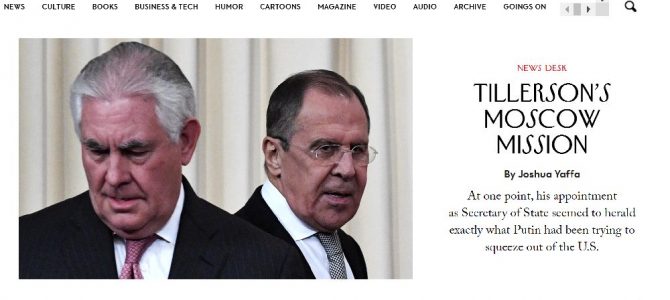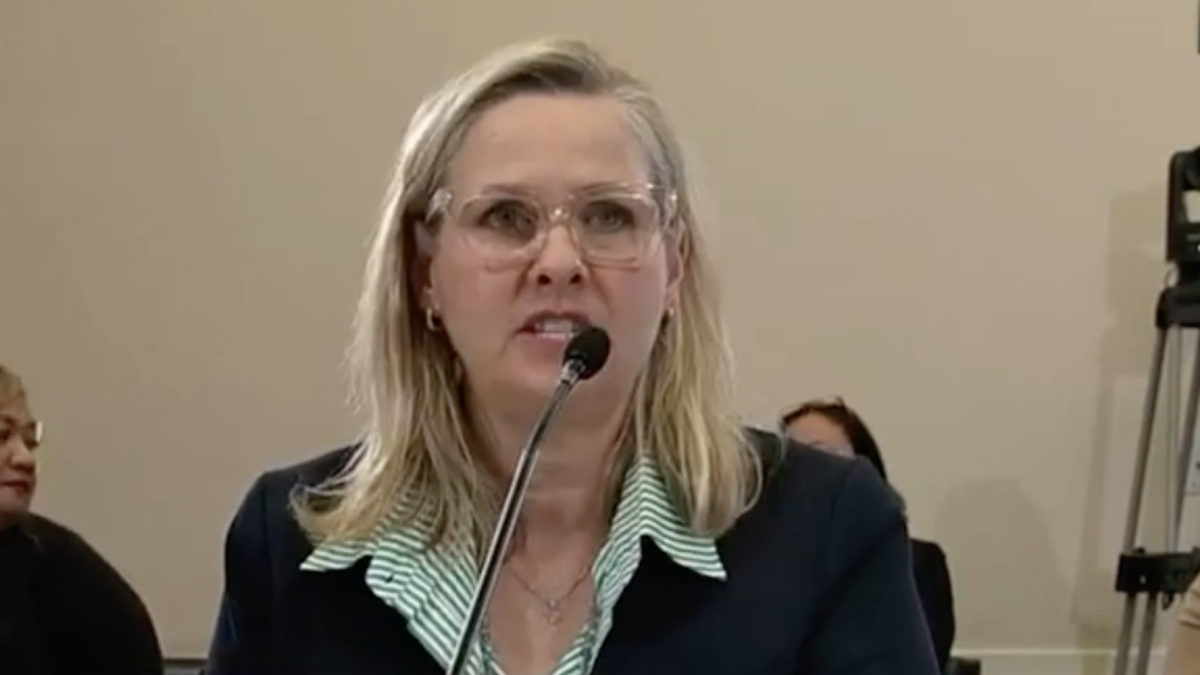
My wife, who has different politics from me, subscribes to The New Yorker magazine. I often read it, or at least give it a glance; as the Chinese military strategist Sun-Tzu said, “Know yourself, know your enemies.” To be fair, on occasion I find a long-form article that I can settle into like a warm bath, as Tom Wolfe described the Sunday New York Times, and know blessed sleep will be upon me soon.
The New Yorker is really a piece of work: an oddball mixture of archaic English grammar and style, and the newest and most fashionable politically correct zeitgeist. What I find most amusing is its use of the comma in so-called restrictive clauses, a style that, to use a real example, results in sentences like this: “Before Atwater died, of brain cancer, in 1991, he expressed regret.” Stupid, right?
But more insidiously, The New Yorker, along with many other “mainstream media” publications, obfuscates and obliterates the truth in more subtle ways. One of the most common, and to my knowledge rarely commented on, is its use of what I call “The Some and the Many,” which, for all we know, is really the few, if any.
The Mysteries of the ‘Some’ and ‘Many’
Why is the use of “some” and “many” a red flag? Because no one knows who they or their motives or bias are. For all the reader knows, the some and many are the writer or editor in the cubicle next to the author. As the Society of Professional Journalists states in its Code of Ethics:
Identify sources whenever feasible. The public is entitled to as much information as possible on sources’ reliability … The most important professional possession of journalists is credibility. If the news consumers don’t have faith that the stories they are reading or watching are accurate and fair, if they suspect information attributed to an anonymous source has been made up, then the journalists are as useful as a parka at the equator.
What do I mean? Take these examples from a recent New Yorker article, but feel free to find your own in the most current issue. In its March 27, 2017, article about “Trump’s Money Man,” (Robert Mercer), author Jane Mayer writes: “Some people who have observed the Mercers’ political evolution worry that Bannon has become a Svengali to the entire family …” Really? Which ones? Says who?
“Some critics suggest that, at this point, Cambridge Analytica’s self-promotion exceeds its effectiveness.” Really? Which ones? Says who?
“[Arthur] Robinson holds a degree in chemistry from Caltech, but his work is not respected in most scientific circles.” Really? Which scientific circles?
“Several former colleagues of Mercer’s said that his views are akin to Objectivism …”
“Another former high-level Renaissance employee said …”
“Multiple sources described him as …”
“Another onetime employee at Renaissance recalls …”
“Several people who have worked with Mercer believe that …”
“People who know him say that …”
“He can barely look you in the eye, an acquaintance said …”
Let’s Anonymize Democratic Talking Points
In its March 5, 2017 issue about alleged Russian interference in the 2016 election, authors Evan Osnos, David Remnick, and Joshua Yaffa write: “The DNC hacks, many analysts believe …”
“Some Democrats worry that the Trump administration …” Now, I don’t dispute that some Democrats worry any number of things about the Trump administration, real or imagined, but if they aren’t named, who takes this seriously?
“…cited media reports that some Trump associates had links to Russians who are close to Putin.” This fragment sums up the entire Democrat weltanschauung pretty nicely.
“Some officials believe that one reason the Russians compiled information on Trump …” Also, what about “the Russians”? Which Russians? All Russians? Russians in Russia or Russians everywhere?
“… some [of McCain’s] colleagues said that it should be part of an investigation of Trump.” Colleagues being senators? Guys he plays racquetball with?
“For many national security officials, the email hacks were part of a larger, and deeply troubling, picture …” But apparently not so large and deeply troubling that their names would be attached to this picture.
“Many Russian and American policy experts no longer hesitate to use phrases like ‘the second Cold War’.” “Some in Moscow are alarmed…” “Some Clinton aides suspect that…” “But many Western Europeans do fear that…”
Okay, So I Just Took a Poll of the News Room
In the March 20, 2017, article titled “Trolling the Press Corps,” by Andrew Marantz, these examples: “On major networks, many hours are devoted to nightly exegeses of Spicer’s … self-contradictions…” Really? How many hours? Which networks?
“A TV correspondent told me…” “A longtime Washington reporter from a mainstream network echoed that sentiment.” “…many pundits noted that [Trump] was one of the few Presidential candidates with no political experience.” “Many of the reporters were unable to mask their displeasure in person…” Of course: fellow reporters and pundits!
Some, but I don’t think many, have also commented on this trend. Who, actually? Kathleen Kelley Reardon, a journalist and professor emerita of management at the University of Southern California’s Marshall School of Business, is one. In an article published at the Huffington Post on October 17, 2011, Reardon writes:
How do we know the motives of ‘some’ people? Who are they? Where do they come from? How many of them are there? Under what circumstances were their opinions obtained? How old are they? Did anyone pay them? Do they even exist?
When will experts respond to ‘some people say’ with, ‘Who might they be?’ Or, ‘In fact, recent data indicates quite the opposite.’ They could ask one of these questions: ‘How many people actually say that?’ ‘Who are these people?’ ‘Where did you find them?’
Predictably, because she is an academic and journalist, Reardon sees the threat as coming from President Trump and the right wing, but otherwise her points are valid. In an update on her Web site, Reardon states: “I’m posting this article again while President Trump is attacking the media, to remind us of our responsibility as information consumers …. We should insist that even our favorite media keep the credibility bar high for our sake and their own.”
Absolutely.
Why does all this matter? Because precision matters. Accountability matters. When they support their arguments with the lazy and hazy “some” and “many,” the fabled New Yorker is no better than the “anonymous” message boards and blogs the mainstream media routinely ridicules. And because while this might go unnoticed by many, some are still paying attention.









